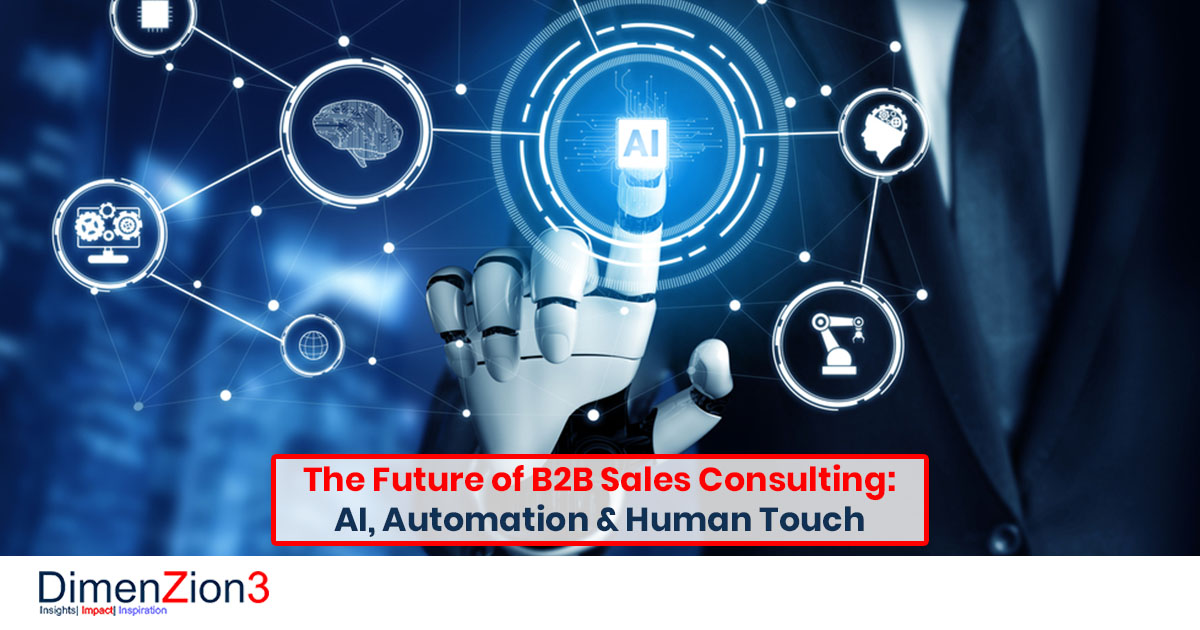The Future of B2B: Utilizing AI Automation to Drive Success
The landscape of B2B is shifting as business increasingly transform to AI automation for strategic benefit. This change assures to enhance efficiency and client engagement with innovative innovations. However, the combination of these devices is not without its difficulties. Understanding just how businesses can browse this advancing terrain will certainly be essential for future success. What elements will figure out the efficiency of AI in this field? The responses might redefine traditional service versions.
Understanding AI Automation in B2B
As organizations increasingly seek effectiveness, recognizing AI automation in B2B becomes necessary. AI automation describes the use of expert system technologies to boost and streamline business procedures. In the B2B field, this involves the assimilation of AI devices to manage tasks such as data analysis, client interactions, and supply chain operations. By leveraging maker knowing and all-natural language handling, business can enhance precision, lower human mistake, and quicken decision-making (Minarik AI). In addition, AI automation assists in the handling of huge quantities of data, allowing services to remove valuable insights and enhance their procedures. As companies browse this technical landscape, an extensive understanding of AI automation's capacities will certainly encourage them to remain receptive and affordable to market demands
Key Benefits of AI Automation for Organizations
While several businesses grapple with increasing operational needs, AI automation presents numerous benefits that can considerably enhance their performance. One significant benefit is performance; AI systems can execute recurring jobs quicker and with higher accuracy than humans, thus decreasing errors and releasing up employees for more strategic campaigns. Furthermore, AI automation allows data-driven decision-making by evaluating vast datasets quickly, giving understandings that notify company strategies. Price decrease is one more key advantage, as automation lessens labor costs and maximizes resource allocation. In addition, AI can improve scalability, allowing businesses to adjust to market modifications swiftly. Eventually, the integration of AI automation cultivates innovation, making it possible for companies to continue to be competitive in a swiftly progressing landscape.
Changing Client Experiences With AI
AI is improving client experiences by improving and making it possible for individualized communications interaction. Via the implementation of anticipating analytics, services can anticipate client demands and preferences, causing more tailored solutions. Additionally, improving assistance procedures with AI modern technology improves effectiveness and satisfaction, eventually changing the total customer trip.
Personalized Interactions and Interaction
Individualized communications have become a foundation of reliable consumer engagement in the B2B landscape. By leveraging AI-driven options, businesses can customize their communication and offerings to meet the special demands of each client. Automated systems evaluate client choices, information, and behaviors, allowing organizations to produce tailored experiences that reverberate with their target market. This degree of customization not only improves client fulfillment however likewise promotes long-lasting commitment. Furthermore, AI tools help with real-time interactions, allowing businesses to react without delay and properly to questions and responses. Therefore, business can develop stronger relationships with customers, making certain that their solutions line up with developing expectations. Ultimately, tailored involvement with AI results in improved end results and continual success in the competitive B2B market.
Anticipating Analytics Application
As services increasingly look for to enhance consumer experiences, executing anticipating analytics has arised as a critical approach in the B2B market. By leveraging data-driven insights, companies can anticipate client demands and preferences, enabling them to customize their offerings much more properly. Predictive analytics makes use of innovative algorithms and historic information to forecast future habits, permitting companies to recognize potential difficulties and possibilities. This proactive technique not just improves client contentment but also fosters loyalty by providing relevant and timely options. In addition, predictive analytics aids in resource appropriation, ensuring that advertising efforts are focused on high-value leads. Ultimately, the integration of predictive analytics gears up B2B business with the devices necessary to transform customer interactions and drive long-lasting success in a progressively affordable landscape.
Enhancing Assistance Procedures
Enhancing client experiences in the B2B sector expands beyond predictive analytics; simplifying support processes plays a crucial duty. By integrating AI-driven services, businesses can automate regular questions and enhance reaction times, causing increased client fulfillment. Chatbots and online assistants offer 24/7 support, addressing customer requires immediately and lowering the worry on human representatives. This automation enables teams to focus on intricate concerns, promoting more meaningful communications. AI devices can examine support information to determine trends and locations for enhancement, ensuring continual enhancement of solution high quality. As organizations take on these innovations, they position themselves as customer-centric and responsive, inevitably driving loyalty and business growth in an increasingly affordable landscape.
Improving Operations and Processes
Enhancing operations and procedures in B2B environments is necessary for enhancing total efficiency. By maximizing workflow effectiveness and automating routine jobs, companies can decrease hand-operated errors and liberate important sources. This change not only boosts efficiency however likewise enables groups to concentrate on tactical efforts that drive development.
Optimizing Process Performance
Optimizing process performance is important for services looking for to decrease operational expenses and boost productivity. By examining existing procedures, companies can identify bottlenecks and redundancies that impede efficiency. Applying structured treatments enhances communication and cooperation amongst groups, making certain that tasks are completed much more quickly. Using data-driven understandings allows firms to make enlightened choices that refine operations further. Additionally, adopting integrated technologies can help with seamless information flow, reducing the danger of errors and delays. As organizations welcome these adjustments, they not just promote a much more active workplace however likewise position themselves to respond swiftly to market demands - AI Automation For B2B. Eventually, concentrating on workflow effectiveness enables companies to assign resources effectively, driving lasting success in a significantly affordable landscape
Automating Routine Tasks
Lots of companies are progressively turning to automation to take care of regular tasks, recognizing its possible to considerably improve operational performance. By releasing AI-driven options, companies can simplify recurring activities such as information entrance, invoice handling, and client questions. This change not only reduces human mistake but additionally maximizes valuable staff member time, enabling team to focus on strategic campaigns and value-added tasks. Furthermore, automation can improve action times and service uniformity, leading to boosted customer contentment. As services navigate an affordable landscape, leveraging automation for regular tasks comes to be important for maximizing workflows and keeping agility. Inevitably, this method cultivates innovation and drives growth, placing organizations for long-lasting success in the advancing B2B environment.
Enhancing Decision-Making With Information Insights

Getting Rid Of Obstacles in AI Implementation
AI implementation holds the guarantee of considerable operational enhancements, organizations typically deal with a myriad of obstacles that can prevent progression. Trick barriers consist of information top quality concerns, as lots of ventures have problem with irregular or incomplete datasets necessary for effective AI training. Additionally, resistance to change within the labor force can restrain the fostering of AI technologies, as employees may be afraid task displacement or lack the necessary abilities. Spending plan restraints also present a challenge, restricting financial investment in the needed infrastructure and ability. In addition, incorporating AI systems with existing processes can be complex, requiring considerable time and resources. Conquering these challenges demands a calculated method that consists of detailed training, modification management, and a dedication to continuous renovation in AI campaigns.
Future Trends: The Next Frontier in B2B Automation
While the landscape of B2B automation continues to evolve, emerging patterns are poised to redefine how organizations operate. The assimilation of advanced expert system will promote much more personalized client experiences, allowing organizations to tailor remedies exactly to customer needs. In addition, the rise of anticipating analytics will allow companies to anticipate market changes and maximize decision-making processes. Automation of routine tasks via robotic process automation (RPA) will certainly boost efficiency, minimizing functional expenses considerably. Additionally, the fostering of blockchain modern technology promises enhanced openness and protection in transactions. As these advancements gain grip, firms will increasingly take advantage of AI-driven insights to foster partnership, simplify supply chains, and boost overall productivity, marking a transformative shift in the B2B landscape.
Often Asked Concerns
What Kinds of Organizations Can Profit Most From AI Automation?
Manufacturing, logistics, and customer care organizations can benefit most from AI automation. These sectors enhance operational efficiency, decrease costs, and improve customer interactions, ultimately resulting in enhanced efficiency and success in an open market.
Just How Can Small Companies Apply AI Automation Properly?
Local business can apply AI automation properly by determining repeated tasks, choosing user-friendly devices, ensuring adequate training for staff members, and progressively integrating services to optimize operations while checking efficiency and changing strategies based upon comments.
What Are Typical Misunderstandings About AI in B2B?
Common misconceptions concerning AI in B2B consist of the belief that it is just for big enterprises, that it assures immediate outcomes, which it can fully change human decision-making instead of augmenting it. Growth Systems For B2B.
Exactly How Does AI Automation Impact Staff Member Duties and Job Protection?
AI automation reshapes staff member functions by streamlining repeated jobs, promoting performance and advancement. While some fear work loss, it commonly creates possibilities for upskilling and my website new settings, ultimately improving work safety via added worth and productivity.
What Skills Are Required to Manage AI Automation Projects?

As services significantly seek effectiveness, recognizing AI automation in B2B becomes necessary. AI automation facilitates the handling of large volumes of information, making it possible for companies to draw out beneficial insights and optimize their procedures. While many companies grapple with boosting functional needs, AI automation presents various benefits that can substantially enhance their performance. Automation of routine tasks with robotic process automation (RPA) will certainly boost efficiency, decreasing operational expenses significantly. Production, logistics, and client solution companies can profit most from AI automation.